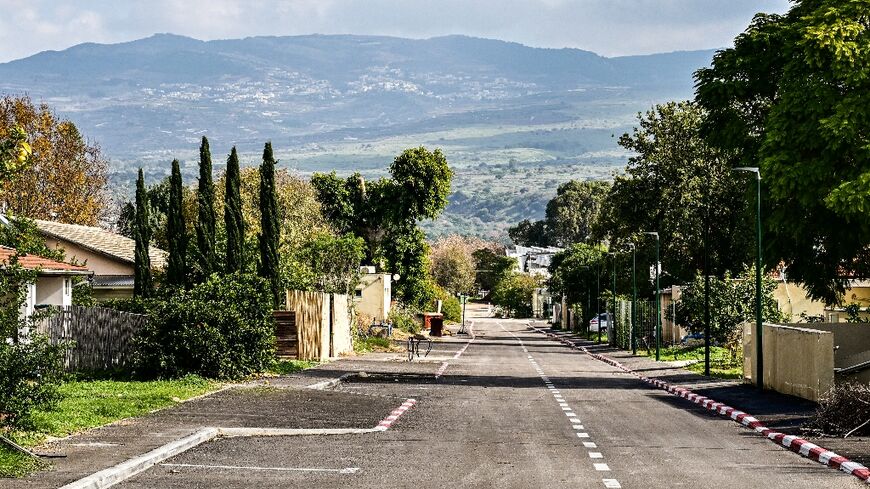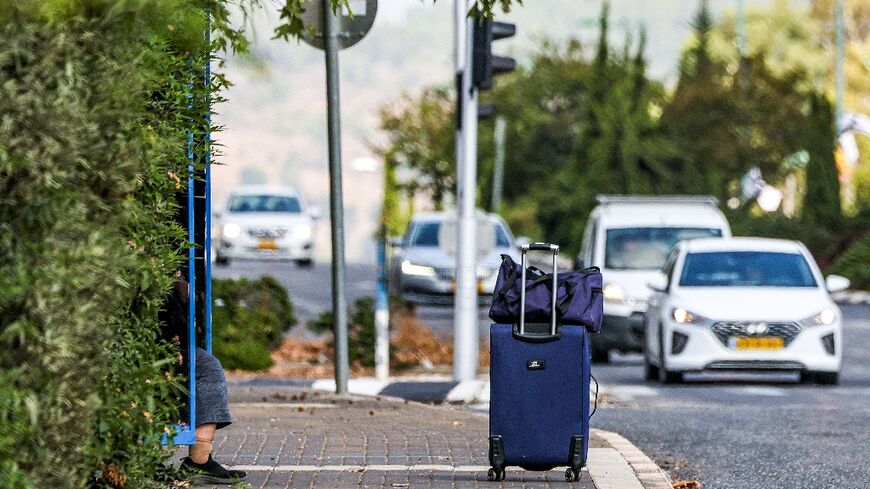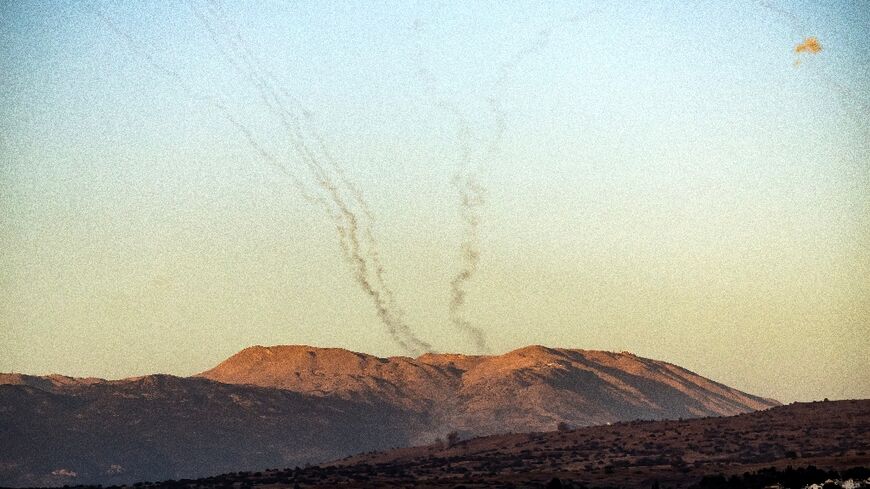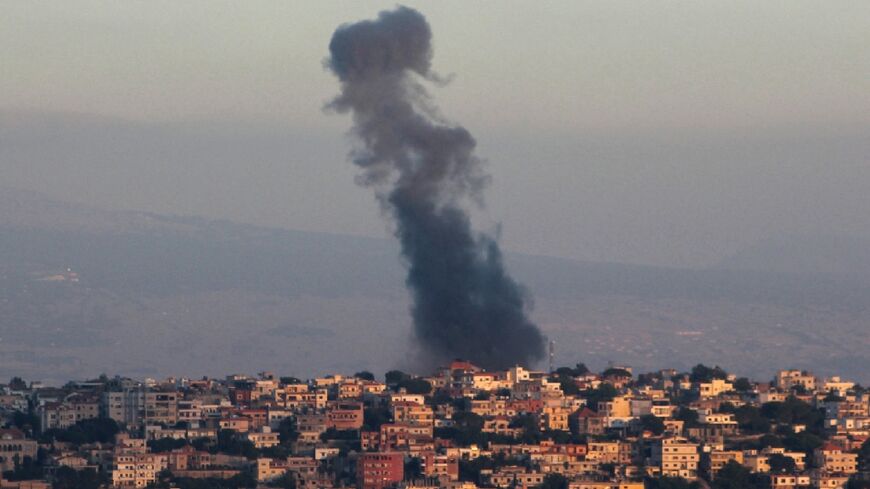In northern Israel, farmers struggle on in fear of Hezbollah attack
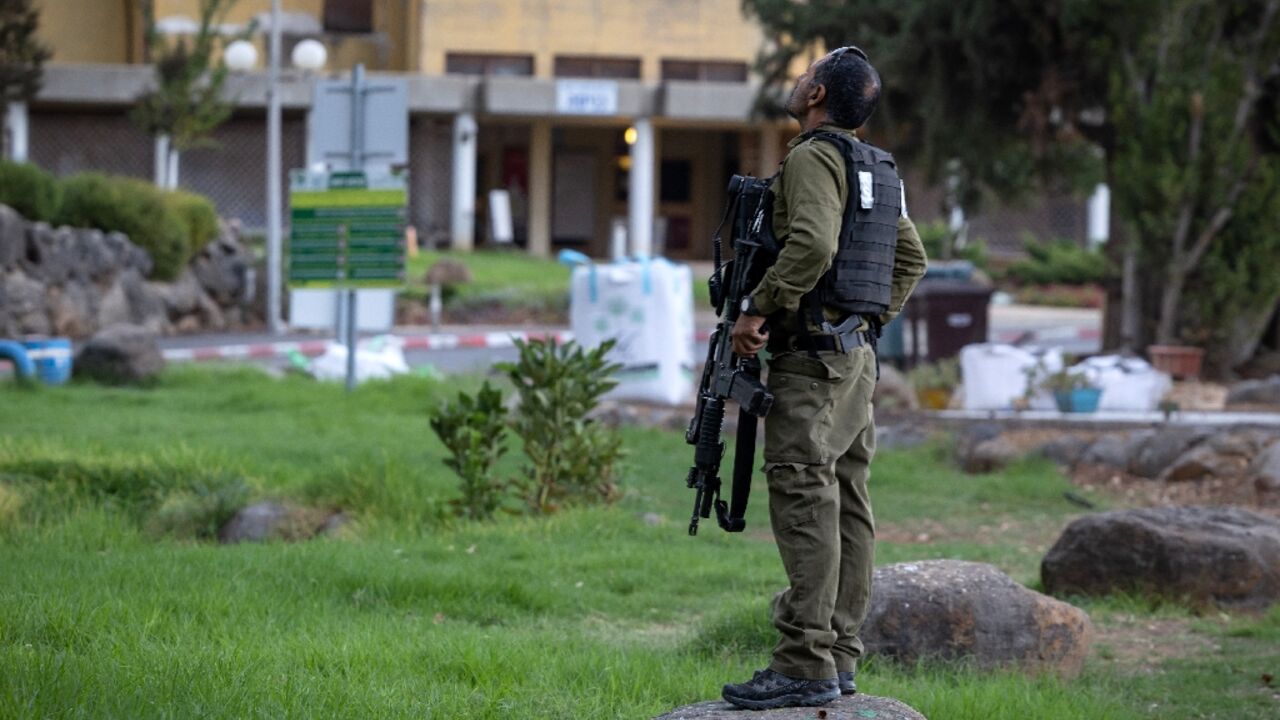
The second milking had just finished, with the few remaining residents of kibbutz Dafna persevering under the threat of a new front opening in Israel's war with Hamas in Gaza.
Here, a few hundred metres (yards) from south Lebanon, where Israeli foe Hezbollah holds sway, the spectre of another October 7 haunts civilians.
Almost all of the 1,050 residents of this agricultural community were evacuated to hotels close to the nearby Sea of Galilee. Only around 15 men stayed behind, charged with the security of the kibbutz.
Dafna is reached down a narrow and poorly maintained highway that Israelis call "the old northern road".
Now, it is deserted, the cause clearly visible across the border -- positions of Hezbollah, the Lebanese militant group allied to Iran which has said it stands ready to step up its operations against Israel if circumstances warrant it.
Twice a day, one less than before the war, the farmers come to milk their cows. "If we didn't, they'd die," said Arik Yaakobi, 45, one of the few who stayed.
"People are scared to return because of the possibility that Hezbollah might repeat what Hamas did," he said.
On October 7, Hamas militants stormed across the Gaza border and attacked farms, villages and a desert music festival in southern Israel, killing an estimated 1,400 people, most of them civilians, according to Israeli officials.
In response, the Israeli army launched an unrelenting bombardment of Gaza which killed more than 8,500 Palestinians, also mostly civilians, according to the territory's Hamas-run health ministry.
In Dafna, only soldiers were visible on the streets. The signs of a hurried departure by its civilian residents were everywhere -- children's toys strewn on lawns, bicycles discarded against playhouses, laundry still hanging out to dry.
- 'I don't sleep anymore -
Occasionally, a resident would return briefly to water their lawn or gather a few belongings, but they soon left.
Sarit Zehavi, founder and director of Alma, a research centre in the upper Galilee region, said she was worried about the safety of her family.
"I don't sleep anymore. I think non-stop about the fence around my home that I need to reinforce. About Hamas, we have seen what could happen to us," said Zehavi, a reserve lieutenant colonel in the Israeli army and mother of three children, including two teenagers.
"The attacks from Lebanon are the doing of Hezbollah ... and we know today that there is no barrier that could prevent an infiltration," she added.
She then showed AFP a short Hezbollah propaganda film from 2014, in which its leader, Hassan Nasrallah, explains with a smile their plan to "control Galilee" and lists the country's strategic points -- its factories, refineries, highways, shopping centres, airports, military bases and so on.
The similarities with the attack that Hamas actually carried out are striking: massive salvos of rockets launched at northern Israel, a wave of Hezbollah commandos crossing the border and penetrating Israel, supported by drones and speed boats.
"It is certain that Hezbollah has in mind to invade Galilee one day," Zehavi said.
The Israeli government is taking the threat seriously. It was concern about a possible war with Hezbollah that prompted the authorities to evacuate 22,000 residents from the nearby city of Kiryat Shmona.
Only a few hundred remain, mainly the elderly or disabled -- people taken care of by the army who have had to relocate to a camp on the edge of the town.
The same is true of all the kibbutz communities along the Lebanese border. Some, such as Hanita and Dafna, founded at the end of the 1930s, are now deserted.
- 'Determined' -
A senior army officer deployed to defend the area told AFP: "We are being deployed here up north to defend our northern border against Hezbollah attack. We are ... ready to deter any attack.
"Every day is a combat day, every day there are multiple attacks from Hezbollah," added the officer, who did not wish to give his name.
Hezbollah and allied Palestinian factions have fired rockets and missiles across the border almost daily since October 7, drawing retaliatory Israeli artillery fire.
At least 62 people have been killed in Lebanon, according to an AFP tally, mostly Hezbollah combatants but also four civilians including Reuters journalist Issam Abdallah. Israeli officials have reported four deaths, including one civilian.
In 2006, Israel and Hezbollah fought a bloody conflict that left more than 1,200 people dead in Lebanon, mostly civilians, and 160 in Israel, mostly soldiers.
Veteran Israeli intelligence officer Avi Melamed said it was far from certain that Hezbollah would go to war against Israel this time.
"The Iranians who control Hezbollah have a dilemma: do nothing and allow the Israeli-Palestinian conflict to continue. Or act and take the risk that Israel's response destroys Hamas and Hezbollah's ability to act," said Melamed.
"That's why, at this stage, they have only launched limited attacks, so as to avoid escalation," he said.
In kibbutz Dafna, Yaakobi remained worried nevertheless.
"We want to come back and live here but the future is uncertain," he said.
"And we have to keep milking the cows... even if they are frightened by the warning sirens or our artillery fire towards Lebanon."




